
The life sciences have experienced major advances in recent years thanks to the development of new technologies. From now on, the study of life occurs on multiple scales and calls on a large set of disciplines represented within the CNRS itself, including mathematics, physics, chemistry, robotics, computer science, environmental sciences, cognitive sciences and social sciences, as many disciplines represented within the CNRS itself. The Institute of Biological Sciences (INSB) is nourished by the interdisciplinarity which is at the heart of the CNRS.
The INSB has successfully contributed to the progress in the biological sciences, as evidenced in particular by the flagship publications of its laboratories, the distinctions of its researchers and their success in European calls for tender. Its strategy is based on:– Encouraging risk-taking– Long-term support for the projects of its laboratories– The emergence of new teams through the ATIP / Avenir program– Encouraging interdisciplinary research carried out at the intersections with biology– Investing in the development of national and European networks of high-performance platforms– Support for international collaborative projects.
Partners
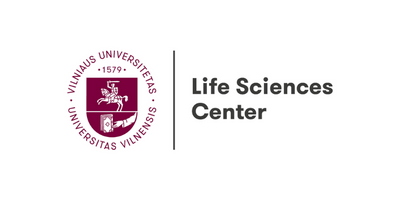
Although the history of VU LSC starts in March 2016 after official opening ceremony of the Life Sciences Center, the origins of LSC date back to 1781 when VU Faculty of Natural Sciences was established. Since then the faculty grew in research fields and number of departments. The LSC has strengthened research, studies and technological advance in the fields of biochemistry, biotechnology, molecular biology, genetics, neurobiology, molecular medicine and related areas.
Institute of Biochemistry is a research center focusing on investigation of biochemical and genetic principles of cell functioning – genetic engineering, biocatalysis, signaling and cell regulation, basic and applied aspects of enzyme chemistry, biosensor design, synthesis of the organic compounds.
Institute of Biosciences carries out research in the fields of molecular and systems biology of living organisms as well as biodiversity, population and ecosystems. The staff of the institute is responsible for all bachelor and master degree study programs, also for doctoral degree study programs of Biology, Biochemistry, Biophysics, Zoology, Ecology and environmental research.
The institute of Biotechnology has become a recognized leader in life sciences. The Institute strives to maintain the highest standards of scientific endeavor and technological advance in a broadly defined field of molecular biotechnology, including nucleic acid and protein technologies, bioinformatics, molecular and immune diagnostics, drug design, microfluidic, next generation genome editing and epigenomics.
In June 2018, Lithuania became the 27th member state of the European Molecular Biology Laboratory (EMBL). To intensify institutional synergies, EMBL signed an agreement with Vilnius University on the establishment of a VU LSC–EMBL Partnership Institute for Genome Editing Technologies at the VU Life Sciences Center. One of the creators of this technology is a Lithuanian scientist, 2018 Kavli Prize in Nanoscience winner, VU LSC Professor Virginijus Šikšnys
For more information you can visit the website: https://www.gmc.vu.lt/en
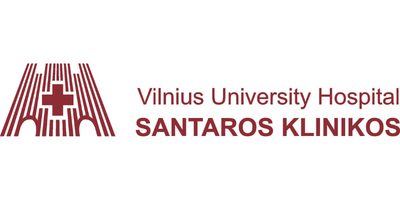
One of the many areas of activity of VUH Santaros Klinikos is the independent performance of biomedical research and participation in scientific activities together with other Lithuanian research institutions. Therefore, the development of biomedical research is constantly promoted in Santaros Klinikos, contributing to the formation of health policy in Lithuania and the European Union (EU) by implementing EU joint actions and biomedical projects. The hospital regularly carries out biomedical research – clinical research of medicines and medical devices (commercial), non-commercial research, research and experimental development projects together with other scientific institutions, research work of PhD students and students.
Patients at VUH Santaros Klinikos contribute to science by participating in clinical trials, they often have a unique opportunity to receive the latest research and treatment for serious, rare diseases and conditions.
It is important that the physicians of VUH Santaros Klinikos as researchers are extensively involved in international research with European and global universities and hospitals, as this demonstrates the scientific and innovative potential of this institution.
The hospital employs 60 professors, 67 associate professors and 219 doctors of biomedical sciences.
For more information you can visit the website: https://www.santa.lt/en/
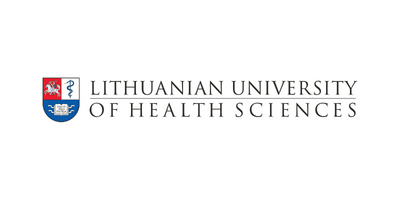
The main features of the research at LSMU are:
• Unity of the studies, research, and clinical practice. It is achieved via close collaboration with LSMU University Hospital Kauno Klinikos and Kaunas Hospital to carry out clinical research.
• Research area – from molecular mechanisms via clinical practice to population level by using
multidisciplinary and problem-based approach.
• Research pathway starts from an undergraduate level.
• Close collaboration with national and international research institutions. More than 40 percent of LSMU research publications are prepared together with international partners. During 2016-2021yrs. researchers from LSMU and Institut National de la Santé et de la Recherche Médicale were co-authors in 112 research articles. Currently LSMU is participating in 8 Horizon 2020 or Horizon Europe projects.
Priority research fields in medicine and health sciences, and natural sciences are biopharmacy, neurosciences, oncology, cardiovascular research, and digestive system research. Recently the problem of COVID -19 emerged among research priorities.
LSMU is providing R&D services for enterprises. The preclinical Research Center coordinates services for research supervision and management, and studies in vitro and in vivo systems.
LSMU researchers are developing novel technologies and products in biopharmacy, digital health service and artificial intelligence in medicine. Eight applications for patents were prepared for European Patent Office in 2021. During 2016 -2021yrs. 4 start-ups were founded by LSMU researchers.
For more information you can visit the website: https://lsmuni.lt/en/
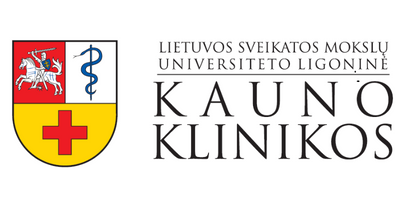
Besides the close cooperation with Lithuanian University of Health Sciences, Kaunas klinikos has established the Rare diseases management coordination center. This center consolidates 19 centers for rare diseases and in each of these centers leading physicians of Kauno klinikos are brought together in order to co-operate in rare disease diagnosis and treatment.
Kaunas klinikos physicians are publishing scientific publications every year in international and local medical journals. These articles cover various areas: epidemiology of inflammatory bowel disease, treatment of hepatitis, regulation of fat metabolism and adipose tissue, atherosclerosis, mechanisms of aging, treatment of cardiovascular diseases, inflammation and basal brain functions, etc.
For more information you can visit the website: https://www.kaunoklinikos.lt/home/
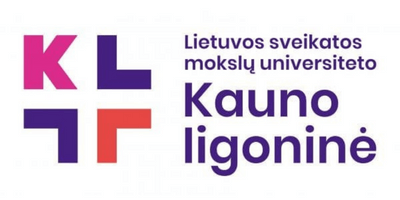
LSMU Kaunas Hospital provides secondary and tertiary inpatient and outpatient health care services, employs more than 3,350 staff and has 1,620 beds for the patients. During the pre-pandemic period more than 62,000 patients were admitted, more than 402,000 consultations were provided, up to 21,500 surgeries were performed and around 2,870 births took place in the LSMU Kaunas Hospital.
The founder of LSMU Kaunas Hospital – the Lithuanian University of Health Sciences (LSMU) sets strong grounds for collaboration between hospital and academia, therefore much of medical staff work not only as hospital physicians but also as academics and researchers working in the field of clinical medicine and care. The LSMU Kaunas Hospital regularly implements biomedical and clinical research – both commercial and non commercial clinical trials of medication and medical devices, research of clinical interventions in medicine and care are carried out by the medical staff in main hospitals departments. The hosiptal also sevves as the clinical base for residents, clinical practice and doctoral (PhD) research. Health Research and Innovation Science Center is Unit of Faculty of Health Sciences in Klaipėda University, which was established by the implementation of the University’s strategy to strengthen the interdisciplinary health research. The Center provides a high-level fundamental and applied research and experimental (social) development work, integrated education and learning process.
One of the major strategic tasks of the LSMU Kaunas Hospital is to strengthen the participation in scientific research and innovation activities while enhancing the international cooperation with global health community through involvement in various european and international partnerships and inniatives.
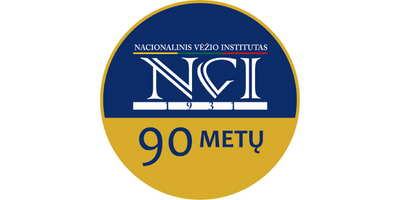
NCI has a multidimensional clinic, the foundations of which are divisions of various cancer localizations – breast, lung, gastrointestinal, gynecological and urological, head and neck divisions. The effective treatment using modern technologies is applied in these divisions.
The patient-oriented international level scientific research works are performed at the Institute with help of biotechnology, nanomedicine, genomics, proteomics and other modern technologies in order to achieve the most important goal – to reduce oncological morbidity, mortality from oncological diseases, and increase the life expectancy of patients, improve their quality of life.
The main areas of scientific activity are cancer prevention, based on epidemiological, experimental and laboratory studies, improvement of tumor diagnostic methods, search and implementation of new treatment measures and methods.
For more information you can visit the website: https://www.nvi.lt/research/
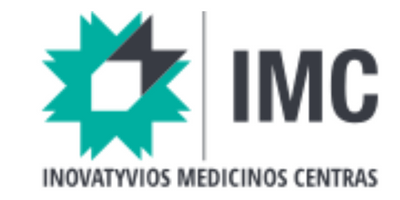
Research scientists’ teams and support staff at the Institute direct their research towards several goals:
• Tailoring scientific research to the needs of the healthcare sector and contributing to the society’s well being.
• Cooperating within the global network of academic entities, public institutions, business enterprises and governmental bodies. Providing contract services and methodological support to our customers and public institutions.
• Disseminating our research ideas and results in the society, participating in the educational processes and contribution to the development of the knowledge economics.
• Our Open Access Centre offers integrated research and development services for companies, scientists and educational institutions in the fields of cell biology, molecular biology, immunology, health monitoring, biotechnology etc.
Scientific directions and key research lines are:
• New stem cells and recombinant molecules technologies for tissue engineering and regenerative medicine.
• Research of molecular and cellular immunity in biological models in vitro and in vivo.
• Health promotion, research into innovative diagnostics, treatment strategies and disease prevention.
For more information you can visit the website: http://www.imcentras.lt/about-us/
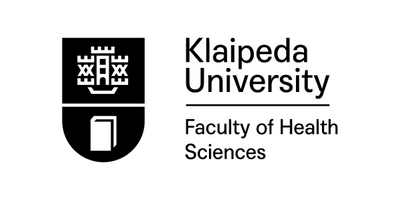
The concept of integrated health sciences is based on the traditions of international scientific community and scientific policy documents, and its implementation is in harmony with the sociocultural and scientific context of Lithuania. Integrated interdisciplinary research is conducted to strengthen public health, social well-being and a sustainable community. Here is implemented a high level fundamental and applied studies and (social) development activities through an integrated teaching/learning process.
The researches carried out by the FHS meet one of the priorities of the EU’s strategic program HORIZON 2020 “Health, Democratic Change and Prosperity”, as well as one of the objectives of the EU Baltic Sea Strategy Action Plan “Sustainable and Healthy Society”. Scientists at the FHS are widely recognized by international partners as leaders in the field of research result implementation in practice, influencing changes in health and social science research, linking knowledge in these fields, and proposing innovative solutions for integrated social well-being.
Health Research and Innovation Science Center is Unit of Faculty of Health Sciences in Klaipėda University, which was established by the implementation of the University’s strategy to strengthen the interdisciplinary health research. The Center provides a high-level fundamental and applied research and experimental (social) development work, integrated education and learning process.
For more information you can visit the website: https://www.kvk.lt/en/
